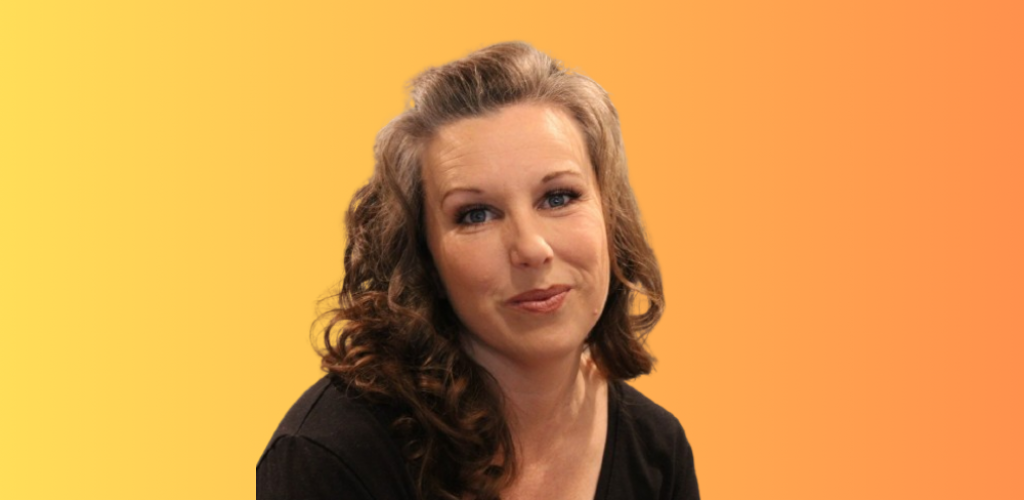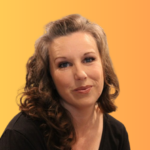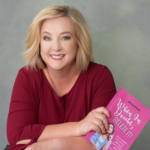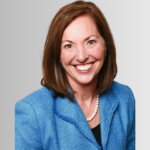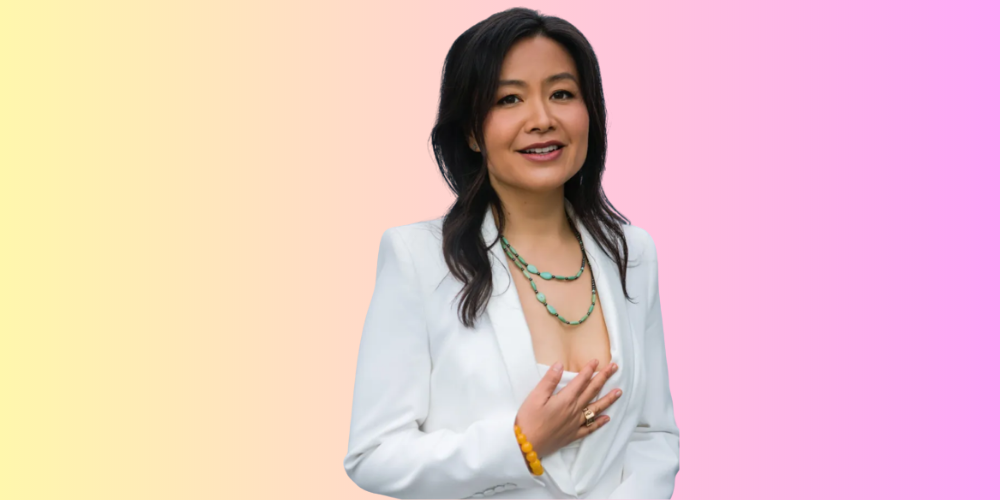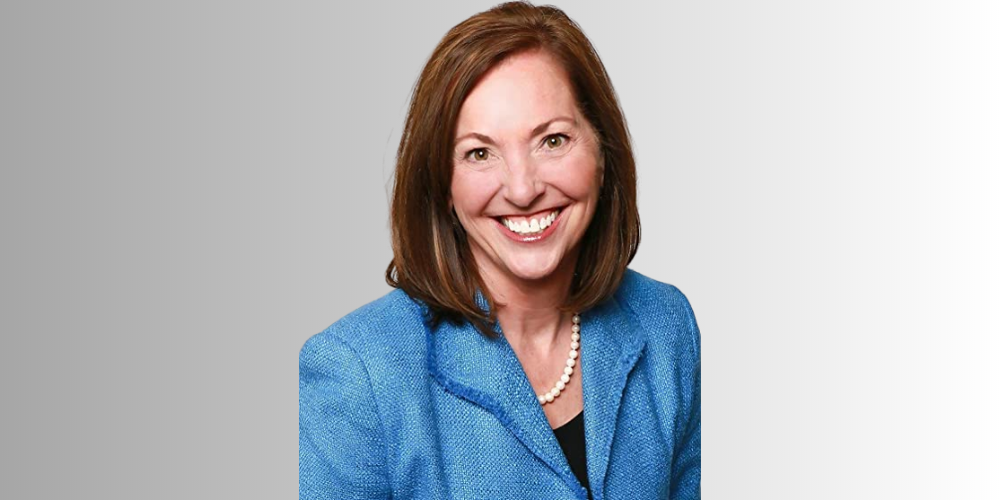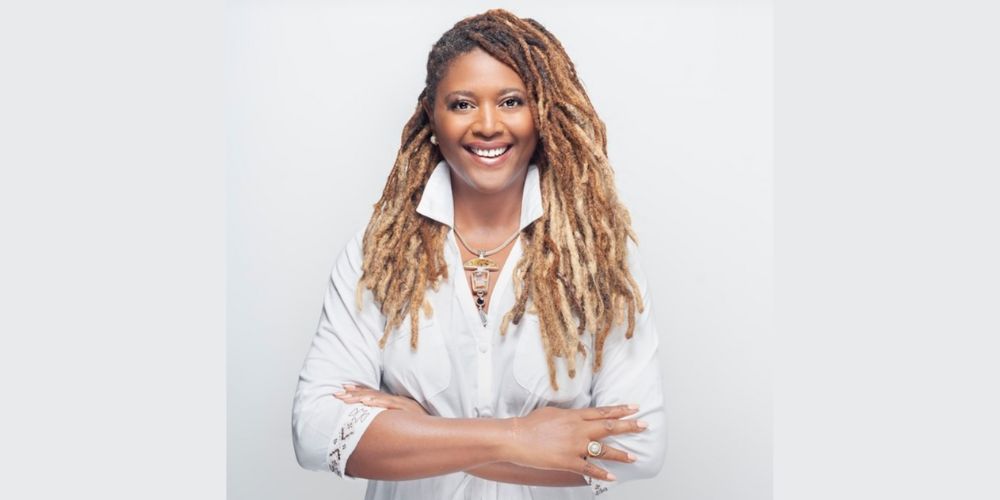Raj Girn: In today’s mindset- and clarity-themed episode entitled, How to Get Your Life Back After Illness, I will be speaking with Katrina Foe, the owner of Personalized Pilates, who is also a certified metabolic approach to cancer practitioner and is board certified in holistic nutrition. As a cancer survivor herself, who has successfully addressed her own cancer through 100 per cent natural means no less, I’m pleased to have her on the show today to talk about her journey and how she has gotten her life back after illness.
Here is our conversation:
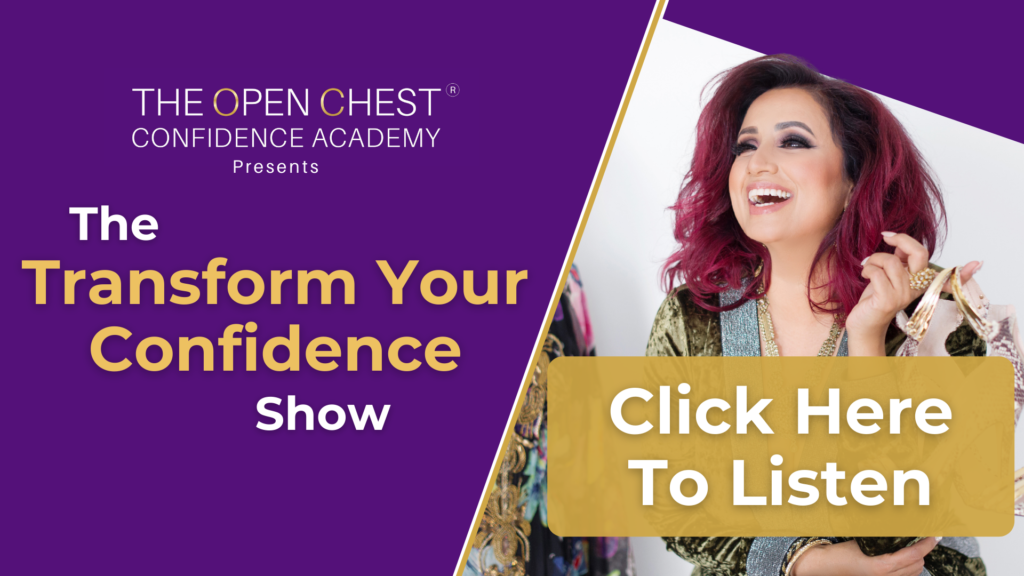
Raj Girn: Katrina, welcome to the show. I’m absolutely excited to be having this deep dive conversation with you here today. Something I don’t usually tackle on this particular show but something I feel that we do need to tackle because people in their professional development in their work life journey, we all deal with something that is long term in terms of challenge. And I feel that the conversation you and I are going to have today is going to really help those in that space. So again, thank you for being on, and welcome to the show.
Katrina Foe: Oh, absolutely. It’s my pleasure. And this is a really important conversation. I agree 100 per cent.
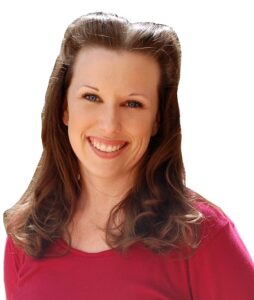
Credit: @personalizedpilates.com
Absolutely. So let’s start by sharing with everyone watching, listening and reading this a bit about your personal journey with cancer. Can you take us back so we can set some context to our discussion today?
Absolutely. So I was nursing one of my babies when I found the lump. And I had a mastitis and I just thought that was part of it. But when the mastitis, the plugs went away, there was about a golf ball-sized lump that was still there. And I’m not a very well endowed woman. So you could very easily see this. And this was concerning. So I went and got things checked out and was rather shocked that it came back as cancerous.
So because of different journeys and health experiences that I had already been on personally, in terms of addressing things naturally, I knew that I wanted to go natural. I have nothing against if people want to use integrative or standard care. But for me, that was my choice. And so I dove into trying to figure out what was going on, because we had already cleaned up our life. I mean, we were to the point where we had moved states so that we could have pasture and raise our own meat animals. Like I’m a little extreme.
I love that.
So I was at this place like, I have no idea what it is that I could be doing. Because I’m doing all the things right. And going through lots of different exploration, reading a million books, and just diving into all the different factors. I found functional medicine. And I had never done any testing before. Let me just back that up. And as we started to go through the testing, I was shocked because there were so many things that I wasn’t having clear symptoms that were radically off that I never would have known about.
So for example, I had been taking vitamin D for years. I read the articles. I knew that it was good for you. But I’ve never tested my vitamin D levels. And I had none of it. I wasn’t getting any of those expensive supplements that I was taking. And it turns out, I have a genetic issue that I don’t absorb it very well. So uncovering some of these things that I didn’t know was incredibly helpful. And part of the whole journey to get that in remission, to where eventually, probably about a year later, the whole lump was entirely gone.
Wow. Oh my gosh, I feel like I need to just stay there for a moment. Can you distill down what the cancer journey was like for you? I mean, we talk about victim phase, survivor phase, graduate phase, and then how do we deal with this then long term? Can you distill that down for everyone because I really feel that there’s importance in understanding the journey that someone goes through In any long term illness or any serious challenge?
I think that’s a fabulous question. And as a practitioner, having seen more clients now I can see this. And I’ll just say that I think the the original most important thing that I had going for me, is that right at the beginning, I made a choice. I made a choice, not what kind of treatment I was going to do, but that I was going to live.
Oh, yeah.
Just thinking back still, again, social and I see people a lot of times where they skip that part. And they just let someone else take the reins of what they’re going to do. And they just become this passive person in the backseat that’s along for the ride. Or they do the ostrich or they stick their head in the sand, pretend it’s not really happening. And they’re not going to do anything, because it’s not really there. But yes, I don’t know, if it’s the entrepreneur in me, that just was like, let’s get this done yesterday. That was my attitude. And I dove in with it full force. I didn’t let anyone else take the reins. I did the research myself. I found the practitioners. And when a door was slammed in my face, I went and found another door. So I think that determination to live is probably the most important thing.
“I dove in with it full force. I didn’t let anyone else take the reins. I did the research myself. I found the practitioners. And when a door was slammed in my face, I went and found another door. So I think that determination to live is probably the most important thing.” ~Katrina Foe
So important. I feel that it sounds like a simple statement, when you say this idea behind the will to live, from your perspective and from the clients that you’ve worked with over the years. Where do you feel that comes from? Is there a common denominator that takes people there? Is it a type of person? I mean, I want to get my head around that piece, because that’s probably the hardest piece of the journey is that mindset right there.
I have a couple of thoughts on that. I mean, because it’s so hard to really dive into, I can’t say for certainty, but like I said, I do think my personality is naturally like, go get them, let’s conquer this. To the point where I have to be a little careful that I don’t treat my family that way as well. But I also have a deep rooted faith in the Lord. And I know that he has a purpose for me.
And so when this came to me, I’m like, okay, where’s this going? And I have been startled and shocked the whole way along. Because when I was 10, even when I was 20 or 30, if you told me, this is what my life was gonna be like, no, it’s not, this is what I’m doing. But looking back, in hindsight, I am so delighted with where it’s gone in ways that were completely unexpected.
So knowing that I have a purpose, and a reason for being here at a gut level, I think, also drove a lot of that I am going to choose life. It’s not an ambiguous thing. It’s not up for somebody else’s determination. It’s not a passive thing.
I love that you share that the core root of this for you partially was your personality, but partially was also your faith in something higher, something bigger, something beyond. And I can really attest to that feeling as well, because I find that women especially, we go through a lot of ups and downs, and those ups and downs are predicated on the fact that we’re female. I really do believe that there are certain things that all women will have the highs and lows on, and finding a place within yourself where something higher exists and knowing that you’re a part of something bigger, I feel is a great place to find purpose in the fact that you get to decide what your destiny is going to be. And that’s exactly what you did. I really align with that. I believe in that myself. I truly do. And when you know that you’re more than this, and that you’re a part of something great and something that lasts forever there is this idea behind that. There is purpose in that where I fit in. I’d love your comment around that.
Yeah, thank you, I appreciate that. I think it’s very important, especially when you’re on something that is hard that you have to draw strength from to have somewhere to get that strength from and to know yes, I’m going to just keep putting one foot in front of the other and we’re gonna go this direction and this is going to have a reason and a purpose.
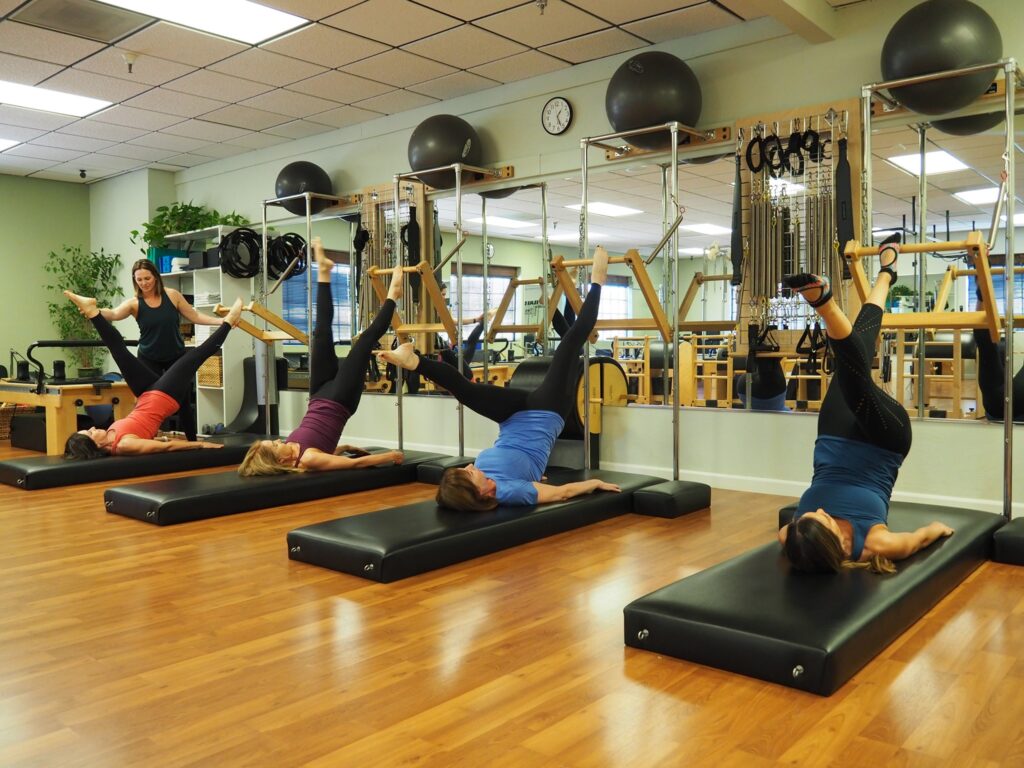
The picture that comes to my mind is that famous drawing of, I can’t remember if it’s God or if it’s Jesus, I think it’s Jesus who is holding up the person who thinks that they are not being held up. But that is Jesus that’s going through the pain and is holding the pain when you’re going through the pain you’re going through. So that’s it and the ideology behind that for me.
I mean, it speaks to every faith on the planet has the same kind of ideology, that will we go through our greatest challenge in life. And with some of us, there’s many of them, right? It’s at that moment, when you have to believe that there is some entity that is going through the heavy lifting of that more than you are. So carry yourself through your part of that journey, because you are being guided to the right place.
And I feel like we’re getting very philosophical here. We’re getting very faith driven here. But you do need that, to get through these times, you need to believe that there is something greater for you. And I feel that is a big message of what you’re sharing here. You got to get through that, in your mindset, first, in your heart space in your soul space first, before you can take on the physicality of it.
I feel that from the deepest part of my being that that’s one of the key components that is being missed by our regular Western medical standard of care, because it’s just the physicality and just the numbers. And while I definitely think that that is a key important thing, you want to mesh those together and look at the entire person, the body, mind and soul.
Absolutely agreed. I want to ask you, you are the owner of Personalized Pilates in Scottsdale, Arizona. Is there a website? Can we send someone to a website Katrina?
Okay, simple as that. So you, during your time, have trained over 1,000 Pilates instructors worldwide. I want to ask you this, what is the connection between between Pilates and cancer or any other kind of long term challenge physically that someone may have? I feel like I want to start there with this part of our conversation?
Oh, that’s a great question. So my first career with the Pilates studio, which we still have, versus the nutrition, they’re so intertwined. And the beautiful thing and commonality that I see there is that we are taking in both areas a step back from what’s going on, traditionally, and looking at the body as a whole.
So how is it integrated? In Pilates we’re looking at muscle balancing, and how does my ankle alignment affect my wrist alignment. Because there is a very strong, concrete connection, both energetically as well as physically with the fascia and such. And then with nutrition, we’re looking at the entire body. You know, we’re talking about something like chronic disease, specifically, maybe cancer. I can’t just put hormones over here in a bucket by themselves, I have to look at literally how do the hormones affect your digestion? How does the digestion affect the hormones? Because they’re so intertwined.
And I think in our limited understanding and brain size as humans, we tend to like to group things and categorize things for our own understanding. And that’s great at the beginning, when you’re first learning something, but we need to really understand that it’s not that simplistic. And the more I learned about the body, whether it’s physical movement, or it’s nutrition, I realized I know very little. It is an amazing body that we all live in. And it has so much to do with interacting with everything else.
Absolutely. I want to touch base a little deeper on the Pilates piece and the holistic nutrition piece, both of which you practice and that you are an expert in. What is Pilates? For the uninitiated let’s go there first.
That’s a great question. So Pilates has become more mainstream, and people have more understanding. They just associated it with some mat work, or maybe they’ve heard of the machines. The bigger picture with Pilates is that it’s a philosophy. It’s a philosophy of movement and looking at the body as a whole and muscle balancing.
“The bigger picture with Pilates is that it’s a philosophy. It’s a philosophy of movement and looking at the body as a whole and muscle balancing.” ~Katrina Foe
So, in any joint, say your elbow, you’ve got muscles that then the joint and then open the joint, and they work in opposition to each other. And often at joints, it’s more complicated. There’s multiple things that can happen. But when one side is too tight or short, the opposing side muscles are going to get stressed and we want to bring balance, and that is going to allow the joint to actually track properly, when they’re out of balance, it’s going to not track properly.
And that’s going to create things like inflammation, eventually pain and eventually injury phase. Same thing is going to happen with nutrition. When things are out of balance, eventually you’re going to go towards symptoms and then into disease space.
Now, with Pilates, a fully trained Pilates instructor and studio, they’re going to have all the different equipment. At our studio, we focus on post rehab, which is more of the classical Pilates where we’re adjusting everything to the individual person, thus the name Personalized Pilates. So we have everything from clients that are in wheelchairs to NFL players, working side by side on the same equipment which is exciting and fun to see all at once.
Absolutely. So let’s talk about holistic nutrition. What is that?
So we are looking at nutrition as the foundation, so the diet, the lifestyle, and then supplementing as needed to turn things around when there’s an advanced disease state to really help to bring balance back to the body. So we’re looking at all the different systems, the gut, and the hormones, all of this, you know, neurotransmitters, prostaglandins, the whole kit and caboodle to make sure that our body is getting what it needs in order to heal itself from whatever’s going on.
What I love is this commonality between the word balance with Pilates and with holistic nutrition, is that the goal with all of this, ultimately, is to make sure that you have optimal balance as a human right? I love that. And it’s interesting because a lot of how we feel, we hear so much out there in the world today about mental health challenges. And that really is the chronic pandemic today, right, on some level or other? So we’re going through it on some level.
And again, I feel that a lot of what people don’t know, especially when it comes to nutrition, how we feel about our body, how our body feels, even in terms of when we eat bowel movements, all of this, it does have an effect on how you feel about yourself mentally. Can we just make that connection from your perspective, from what you’ve seen? Because I do feel that if there were a lot more people that understood the physicality of their body, how the food function works, and all these things that you specialize in, that it would have a majorly positive impact on how we feel about ourselves from a mental state of being. Talk to me a little bit.
Oh, thank you so much for bringing this up. This is a passion, near and dear to my heart. So when you’re talking about the mental state, I mean, we separate it. Most people understand, okay, if I eat these foods, I’m gonna feel bad, like my stomach might hurt, but they’re not connecting it into their head, and mentally, what’s going on. And you know, if you think about what our standard American diet is, what is typical in terms of food, is very carbohydrate heavy, which clouds the brain and really will bring down productivity, honestly, at the end of the day with entrepreneurs and such.
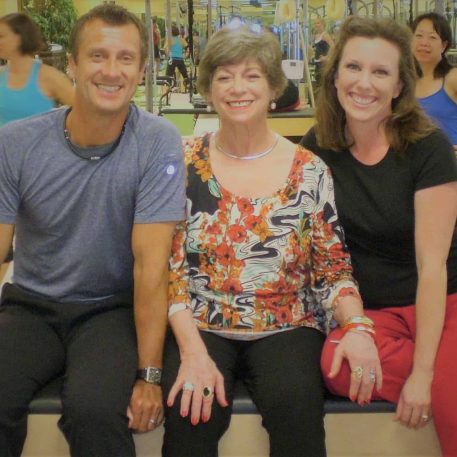
But there’s also an effect on the mood. And this is profound. My clients are coming in because they have cancer. We’re working on all this stuff. And we’re getting them into ketosis as a therapeutic device for cancer. But as a side benefit, every single one of them comes back and is like, wow, on some level, they didn’t realize how cloudy their brain was, that wasn’t the main issue if they even had noticed it.
But they’re saying things like, “Wow, I can think better.” Or “I just feel more calm, my anxiety is going away.” And this again, is not the point of what we’re doing. This is a side benefit as they shift their diet because that diet is so key, not only to get the blood sugar regulated, which greatly affects the brain, but also to make sure that you’re getting your digestion optimized, so that the foods you’re eating, you’re actually getting the nutrients into your body. And so you have all the components to make those neurotransmitters, because I’ll tell you one thing, your body prioritizes. It’s brilliant.
You think of a key entrepreneur and how they prioritize things to really keep their focus and that’s how they do their magic. Our bodies that do that innately. So things like brain fogginess, it’s not a super high priority for your brain, even if it is for you personally, you don’t get to decide and trump that. So you’ve got to make sure that everything else is shored up so that those lower priority things that are high priority for you get taken care of.
I love this. This is so important. You guys know that I don’t do episodes like this, but I just had this gut feeling when Katrina came into my email and I read her bio and I just felt that this was something that we needed to talk about just instinctually.
And I feel that the bigger part of this discussion is, as entrepreneurs, as subject matter experts, as people that have these high achieving personalities, oftentimes we don’t understand how important integrating the physical side of things, and the nutrition side of things, is equally as important as feeding your hustle and networking and all the other things that we feel makes us optimal beings. I feel that this is really important.
But what I do want to bring this back to, Katrina, is integrating back into normal life and the workforce after serious illness can be quite the uphill trek. What do you feel people need to know to make it up that hill. From all the people that you’ve worked with, that you have yourself been through this journey, what do you feel people need to know to make it up that hill?
Oh, that’s a fabulous question. So there’s a lot. I mean, if you’re faced with a serious chronic condition, like cancer, this is turn the Titanic around. It’s serious. People need to give it their all, in order to really be successful. And by that I mean live. And so there are tricks and ways to get this incorporated into your life so that it doesn’t necessarily have to slow you down, maybe, like, completely dead in the water. I would definitely say you need a practitioner that’s experienced in understanding what all this is, so they can problem solve with you.
But there’s a lot of simple things. Making sure that you have consistent bedtimes. Getting toxins out of your life. So when you go to that networking party, what does everyone want to do? Have a couple drinks to take the edge off. Well, that’s a stress on your liver. What can you do to not look like the oddball and not be strange in the business networking, but still keep a hold of your body.
One thing I like to do is I’ll get some sparkling water instead of always having the alcohol. Little things like that, if you’re really strategic, can allow you to incorporate this when you’re detoxifying. That’s a key component for anybody with cancer. I have an infrared sauna and that just overwhelmed the heck out of clients until I explained that’s the time when I get my most of my stuff done.
I can take my writing pad in there and I can focus and really get some good planning work done or whatever it is. While I’m sweating, I don’t have to have it just completely quiet. Choosing how to integrate and layer and biohack, for example. Your biohacking is really key, you know, pulling into your life health, so that you can make sure that you have consistent, good quality food, and that you have ways to take it with you when you’re on the go. It is incredibly hard to eat healthy when you’re out.
Let me just say that again. I can’t stress this enough to my clients. It’s so hard to eat healthy, because what do they serve in restaurants, even if you’ve got a salad with some nice meat on it. Okay, what do they put in the salad dressing? It is the highly inflammatory canola oils that are super toxic. So what are the key hacks I tell my clients is take your own salad dressing with you, which doesn’t really necessarily change the outcome of what you’re doing. It’s not harder. It just takes a little intentionality. And that intentionality that is what entrepreneurs are really good at.
So you can harness that for your own healing, but you want to get the consistency, the understanding down so that you can really be strategic in these things. And it doesn’t necessarily have to be a dead in the water kind of a thing.
I love that. You’ve prompted a question. Now I want to ask you from my personal perspective. I use coconut oil to cook. Is that bad?
Oh, that’s one of the best things you could do. Good job. You don’t want to do is use the polyunsaturated fats. They’re highly, they go round some very easily, very caustic and such. And so those would be like the vegetable oils, canola oil and stuff. And people don’t realize that they actually bleach and deodorize those oils to make it so that you can tell what you should be able to pick up that they’re rancid. And they’re super toxic.
So those middle unsaturated fats monounsaturated, the avocado oils and the olive oils, those aren’t my favorite for cooking, because they’re still a little reactive. But the coconut oils, those saturated fats, butter, tallow, lard, those are the best for cooking. And those are things that are usually going to be solid at room temperature.
I love that because butter is the other thing I use. I’m talking real butter, not that spread a fake thing. That plastic margerine thing that they sell everyone. No wonder everyone’s so ill in the world. It’s terrible the plastics that we eat. So I’m on that page.
There’s three things that really drive chronic disease. State one is the bad oils that they have sold us a bill of lies that are good for us. And they’re really the worst thing for us. Two, would be all the carbs, all the processed junk food. I mean, our mainstay is white flour at every meal, which is really awful for our blood sugar and drives chronic disease. And then the third is the level of toxins. So whether it’s mold, or all the pesticides, herbicides, chemicals, flavorings, all this stuff that’s in our food, and just our environment, our water, everything. If you can reduce those things, you are going to be doing yourself a huge service.
“There’s the three things that really drive chronic disease. State one is the bad oils that they have sold us a bill of lies that are good for us… Two, would be all the carbs, all the processed junk food… And then the third is the level of toxins”. ~Katrina Foe
You heard it right here, guys. Just those three things. It’s lovely to hear that there’s just three things you need to focus on. Usually, there’s long lists of things, which is why we don’t do them. So I love that. Katrina, I want to ask you this, who is your ideal client? Who do you work with?
I work with clients with cancer. I actually get a lot of clients that have done standard of care. They come to the understanding while they’re going through their journey, that that’s not really getting to the root issue. And they are like, I want to circle back around and do this work so that I don’t end up having it come back again. And I don’t have to live with the black cloud. My clients are typically well educated. They’re thinkers, they’re the people that want to take initiative and make sure that they have the bull by the horns, so to speak.
What better person to serve than you because you’ve done it already. I love that.
They’re usually women. I think as a whole, women tend to be more sensitive to what’s going on in our bodies and more proactive and working on it. That doesn’t mean I don’t work with men. It doesn’t mean there aren’t men out there looking for that. But usually, women will notice things going on the quicker kind of like what you’re talking about the beginning of this.
Can you run us through how you set your clients up to win Katrina? What is the journey you take your clients on when they choose to work with you? Give us a high level on that so people can understand before we send them to your website.
I have a one-year program. And we start by doing all the functional testing all at once. Because with cancer, this is a multifactorial thing. And there’s usually six to eight of the 10 drivers of cancer that are off and significantly, and I want to make sure we don’t miss them. We don’t want to do just this test and see if this gets better. We want to get all the smoking guns in the table at the beginning. So then we can prioritize and make sure that everything’s going to go as smoothly as possible.
While we’re waiting for the test to go back, we start with cleaning up the diet. And usually it’s not a matter of like, let’s get out the ding dongs and hohos. My clients aren’t coming to me eating that. They’re already eating the salads. This is a matter of let’s start tweaking it and getting them into ketosis. I also start them on an HCL challenge.
So we’re going to make sure that their stomach acid is ramped up. Because if you don’t have a low enough pH, you’re not going to be able to digest your minerals, you’re not gonna be able to keep any pathogens you might inadvertently eat at bay. And your digestion is not going to be optimal. So that’s a really key beginning place that is generic to anyone.
Then as the test come back, we go through them and we go through protocols. And because cancer is a complicated thing, as with any complicated chronic disease, there’s going to be layers, things are going to go sideways and we’re going to need to problem solve and it takes a little while which is why we have the year process to really tease that stuff out.
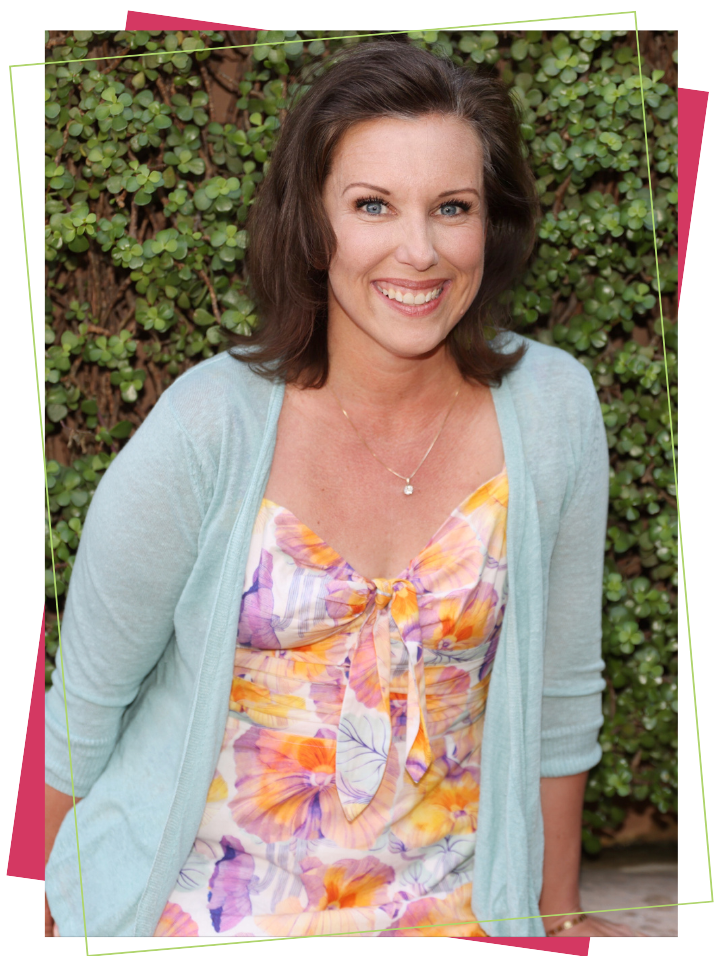
That totally makes sense. What’s the big outcome you hope your clients will accomplish working with you? I mean, I feel it’s a duh, because we want them to be cancer free. But I also feel that it’s gonna be more than that. Because they can’t be cancer free and stay a certain way without learning certain habits and certain disciplines. I feel that’s the bigger takeaway of the value proposition.
Yes exactly. So the transformation that I am looking for my clients is that I want them to come away educated, knowing what their specific drivers are. So out of those 10 areas, what were the issues for them? Which markers do they need to watch ongoing on their tests and how do they do that? Which areas of the diet, the lifestyle are really key for them, because that’s going to give them the tools, not only to stay cancer free, but to have the piece that they know what’s going on there.
What drives me crazy is that in traditional standard of care. I hear this over and over again, from those clients that come to me, after having done chemo and all is their doctor says, “Oh, no, it doesn’t matter what you eat. Eat whatever you want.” And the doctors are leaving them with no tools, no control, no understanding of what’s going on. And that I feel is really critical for people to understand their body, so that they know how to help themselves and how to create these lifestyle choices that are then going to set them up for success.
Share with us the ways that people can work with you. What is your program, your programs, your service? I know that people are gonna to want to know that information after everything that you’ve shared.
My program is called Cancer Freedom. And the website is cancerfreedom.com. So there you go. I’m on Instagram @KatrinaFoe. The easiest way to connect with us is through the actual website. And I’m gonna give you a link to my free ebook of the roadmap to have prevention of cancer recurrence. So the more expanded information on these topics, and then you know, how to go about finding us as well.
I love that. That’s it. That’s wonderful. So for everyone watching, listening and reading this, who know they aren’t fully optimized in all of this, what can you say to them to help them over the fence to Nirvana? People that are actually going to do the things that need to be done here because we listen to things, we read things, then we’re like, okay, we move on, how do we get them into conversion?
I think you mentioned earlier, how usually there’s lists of like 5,000 things to do. And that’s because they’re all the generic, let’s get all the low hanging fruit. And those lists are all great when you’re talking to a generic audience, and you don’t really know who the person is in front of you.
When you’re working with a practitioner, you get to do all the testing. And you can see specifically, what are the things that are going to move the dial the most for you. So, for me, specifically I know that the blood sugar is a really big deal. Genetically, I suck at that. I also suck at detox. So I need to ongoing be keeping up with my saunas and such like that. Those aren’t necessarily the biggest movers for other people.
So while I can say those are great for me, they may not be for everybody. I mean, they would be great for everybody. But again, when you want to pick and choose your battles of you want to look at time management, you want to look at what is going to be the biggest return for your dollar, knowing genetically and from your own lab tests. What’s going on is going to help you really dial into what is going to be long term, the best methods for you.
Absolutely. So basically, what you’re saying is educate yourself on all the things and dial into those that are perfectly individualized for you, right?
Yes, And unfortunately, a lot of practitioners are doing like, I’ll do this one test, because it sounds like this is what’s off with your symptoms. And that may be a great choice, but that’s not going to give you the framework of overall what do you need for optimal health? It may be a good guess, it may not address the issue.
And I’m going to tell you something like I have so many clients that come and their biggest issue, it ends up being mold, and people aren’t talking about that. But it’ll throw your hormones off. It’ll throw your gut off. It’ll drive cancer. And if people aren’t testing for it, they’re not going see it. And this is a big problem in our society right now that people are not talking about this as much as needed.
So this is important then. So we need to send them over to you, Katrina. Any final words you’d like to leave everyone with to loop them back to the theme of this episode, which again, is how to get your life back after illness? Any kind of final wrap up for everyone?
I think after working through a chronic disease, it’s so easy to slip back into old patterns. And I would say the most important thing, and this is something that I can be guilty of myself, is that we really need to know what those things are for us and for entrepreneurs and those that are out there, going and changing the world.
The biggest thing that I see is that it’s really easy to miss things like consistent sleep, you’re traveling, you’ve got time zone changes, all this kind of stuff. Missing the stress piece. I can keep going. I can keep doing it. Am I actually having any downtime, fun time, turn off time? How stressed am I getting? Is that physically affecting me? Or is it just mentally? You know, and then stupid things that seem so easy like hydration. I know, for myself, I am super guilty of this.
When I travel, I drink almost no water. It’s terrible. And then I’ll be in another new place and the water doesn’t taste quite right. And so I just don’t drink water. So making sure that you carve out intentionality with some of these areas ongoing. Those are the areas I see people kind of brush away when they’re done with their healing. And they can be really key to making sure that you stay in the healing zone.
Absolutely. Stay in the healing zone. Guys. I feel that that’s a perfect way to close out this fascinating episode. Thank you for agreeing to come on and to sharing all your expertise and insights with us, Katrina. So much to glean for our community here but also regarding empowering ones self to make the right decisions long term. Thank you for that.
Absolutely my pleasure.
Folks, I’d like you guys to just hop on over and share this episode with everyone you know. You need this info and everyone that you care about in your life needs this info. I want you guys to also go and check out Katrina on her socials, the two websites. Katrina again, let’s send them to the two websites. What are they?
cancerfreedom.com And then Pilates, our personalizedpilates.com
Perfect. Thank you again for being on and everyone you know that you need this wisdom, you need it for you, the people that you love, especially your children. There’s so much challenge today that they have to face, in the food in the environments they’re in, in the social landscape that they live in. There’s so many ways that you can take charge of your life and I feel that the physicality, the nutrition, and taking charge of your mental space, three things that we’ve talked about today with Katrina are extremely important for you to control.
“There’s so many ways that you can take charge of your life and I feel that the physicality, the nutrition, and taking charge of your mental space, three things that we’ve talked about today with Katrina are extremely important for you to control.“ ~Raj Girn
And, as always, I’d like to encourage you guys to please subscribe to my Youtube channel and hit the notification button at The Open Chest Confidence Academy, so you don’t miss a single episode each time we drop them.
You can also download The Transform Your Confidence Show on podcast platforms and give it a five star rating if you feel that this is a valuable resource to assist in your journey to empower your confidence with actionable insights.
You also know that we also can have you read this podcast as a blog on theopenchestconfidenceacademy.com/media/ podcast and I’ll see you as I always do, on the other end of this on our socials in our E-blasts. In my world, I welcome you to bring everyone else in that you feel can get some great value from the things that we do and that we share.
And as I always say, please look at empowering your work, your life and your spirit because all of them belong to you.
I’ll see you next time. Please take care of yourselves.
To contact Katrina Foe: Web, Facebook, Twitter, Instagram, LinkedIn



